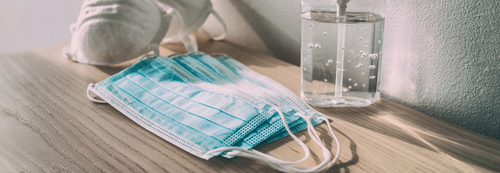
If you have been diagnosed with COVID-19 and you are showing mild symptoms of the virus, your doctor may recommend you to recover at home. He or she will give you special instructions to help monitor your symptoms and reduce the risk of spreading the illness to other people. You may be required to stay in home isolation for some time except to get medical care. If you are very ill or your symptoms are worsening then you need to be treated in the hospital. This article discusses things to do if you are diagnosed with COVID-19.
- Stay At Home Except to Get Medical Care
Most patients who have been diagnosed with COVID-19 can recover at home without medical care as long as they manifest mild symptoms of the virus.While at home, you need to stay hydrated and get enough rest. While it is also important to stay in touch with your doctor at all times, call first to give an update about your symptoms before scheduling a medical visit. Taking over-the-counter medications such as acetaminophen can help you feel better. If you experience any difficulties in breathing or other concerning symptoms then you can always call 911 for immediate help.
- Isolate Yourself From Other People
Covid-19 spreads through direct contact with infected persons or contaminated surfaces. Since you are aware of your condition, you must separate yourself from other people in your home including pets. Stay in a specific room and use a separate bathroom if possible. Family members who are not at higher risk can help run essential errands. It is better to communicate with them on the phone or other digital means to reduce any close contact when giving instructions. These measures are important as they prevent the illness from spreading to your family members or loved ones.
- Check Your Symptoms and Report Information
During the isolation period, it is crucial to monitor your symptoms, which may include fever, cough, or breathing difficulties. Your healthcare provider and local health authorities may give you instructions on how to monitor your symptoms and report information to assess your progress. If you start experiencing breathing difficulties at any point, it is necessary to get immediate medical attention, as it is a serious symptom of COVID-19.
- Wear a Cloth Covering Over Your Nose and Mouth
If you have to navigate around the house or other people, then wear a mask or cloth covering over your nose and mouth. It is not necessary to wear a cloth face covering if you are alone especially if you start experiencing breathing problems. Staying 6 feet away from other people helps to keep them safe from infection.
- Clean and Disinfect High-Touch Surfaces in Your Room
Since COVID-19 can spread easily through contaminated surfaces, it is important to clean and disinfect places you touch often in your ‘isolation room’ and bathroom. Let other family members or people clean the other common areas around the house. If a caregiver needs to clean and disinfect your bedroom or bathroom, then they need to wear disposable gloves and a mask before cleaning. Ensure you have someone you trust to check on you daily to ensure you are doing okay.
- Avoid Sharing Personal Items
Sharing personal items like cups, dishes, utensils, bedding, and towels can increase the chances of infecting other people who have not contracted the virus. It is important to wash these items immediately after using them with soap and water. You should also sanitize and clean your hands often for at least 20 seconds before eating or preparing food. If you do not have access to soap and water then consider using a hand sanitizer that has at least 60 percent alcohol content.
When to Seek Medical Help
If you are experiencing severe dizziness, difficulty breathing, or constant chest pains then you need to get immediate medical attention. Call your doctor if you are generally too sick to eat, use the toilet, or perform any basic personal care. Make sure you call your doctor before you leave your home to get medical care. Less serious visits are done over the phone and allows some time for health care professionals to discuss your situation and plan for your arrival.
It is important to discuss with your health professional about any underlying health conditions like asthma, diabetes, or lung disease. People with a compromised immune system are at high risk of developing complications during the later stages of infection if it is not addressed earlier. Remember, many people who contract COVID-19 may not require immediate medical help as long as they follow the recommendations of their healthcare providers. However, if you do not see any signs of improvement then it is important to get immediate medical attention.
